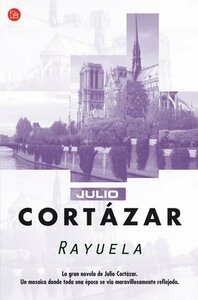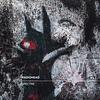Take a photo of a barcode or cover
challenging
dark
emotional
reflective
medium-paced
Plot or Character Driven:
Character
Strong character development:
Complicated
Loveable characters:
Complicated
Diverse cast of characters:
No
Flaws of characters a main focus:
Yes
challenging
dark
funny
mysterious
reflective
slow-paced
adventurous
challenging
dark
emotional
funny
hopeful
inspiring
mysterious
reflective
sad
tense
slow-paced
Plot or Character Driven:
Character
Strong character development:
Complicated
Loveable characters:
Yes
Diverse cast of characters:
Yes
Flaws of characters a main focus:
Complicated
dark
emotional
reflective
tense
medium-paced
Plot or Character Driven:
A mix
Strong character development:
Yes
Loveable characters:
No
Diverse cast of characters:
Complicated
Flaws of characters a main focus:
Yes
Da ich die Deutsche Ausgabe gelesen habe, wollte ich ursprünglich auch meine Bewertung in Deutsch verfassen, entscheide mich jetzt aber doch dafür dies in Englisch zu tun:
First off, if your English is up to the task, I recommend picking up [b:Hopscotch|53413|Hopscotch|Julio Cortázar|https://d.gr-assets.com/books/1367728486s/53413.jpg|1794732], since I was ultimately not happy with the German translation and the English one was done by [a:Gregory Rabassa|50060|Gregory Rabassa|https://s.gr-assets.com/assets/nophoto/user/u_50x66-d9f6a4a5badfda0f69e70cc94d962125.png] and awarded the National book award. I admit that I can not make out any mistakes in the German translation (just some minor things I'd have phrased differently, 'Cheshire Cat' vs. 'Grinsekatze', to name one example) but the German translation lacks a "flow" and, especially since Cortázar explicitly works with language as an element of style, it feels as if some of that style is lost in translation. Maybe the Spanish or French version is ultimately the way to go.
As usual, I will not bother to summarize the plot of the book, there are plenty of summaries just a google away. However do NOT got to the English wiki entry it is full of errors you might want to try the one over at Enotes.
Before continuing, let me just mention that I've read the book in the second 'way', hopscotching through the chapters.
Second, the rating of three stars is but a temporary one, all I can say that Rayuela deserves at least two stars for Cortázar attempts to encourage the reader to actively participate in reading the book instead of telling a linear story to a placid mind. The third star is for the conception being ahead of its time. I could not find an ebook version of the English or German translation, a real pity, because Rayuela could profit from it: I would have enjoyed it to be able to set up my own plot (e.g. select the order you want to read the book in at the beginning) and considering the great may themes that are touched upon, easy online access for looking up events I was unfamiliar with would also have added to my enjoyment.
The reason that I stick with 3 stars for the time being, is that I'm not sure whether he succeeded in his attempt to get away from the 'Leseweibchen' (I like this term in the German translation, obviously) to a more active reader who participates in the books with the author.
I consider myself decently well, read, in particular when it comes to the great many Philosophical and scientific themes touched upon by Cortázar throughout the novel, I freely admit that I lacked the knowledge to the multitude of Jazz references, but the point is, that I had, at times, difficulties to follow where the author was going: the "philosophizing" in the Serpent Club has struck some critics as "tedious and verbose" .
On the one hand, I have little doubt, that, with another reading, this book will quickly become one of my all time favorites, there are so many treasures: themes beautifully contrasted with one another (there is a reason for another German term "Doppelgänger"), the philosophizing I love, playing with (not against) language, style, and the reader, and everything wrapped into a journey into the self. On the other hand, I have also little doubt that reading the book in the first way, linearly, without active participation, it is but a tedious work many will simply shy away from. It would not encourage to read it a second time through, more actively, therefore, Rayuela might remain a work for the pretentious reader and not one that transforms people into an active one.
First off, if your English is up to the task, I recommend picking up [b:Hopscotch|53413|Hopscotch|Julio Cortázar|https://d.gr-assets.com/books/1367728486s/53413.jpg|1794732], since I was ultimately not happy with the German translation and the English one was done by [a:Gregory Rabassa|50060|Gregory Rabassa|https://s.gr-assets.com/assets/nophoto/user/u_50x66-d9f6a4a5badfda0f69e70cc94d962125.png] and awarded the National book award. I admit that I can not make out any mistakes in the German translation (just some minor things I'd have phrased differently, 'Cheshire Cat' vs. 'Grinsekatze', to name one example) but the German translation lacks a "flow" and, especially since Cortázar explicitly works with language as an element of style, it feels as if some of that style is lost in translation. Maybe the Spanish or French version is ultimately the way to go.
As usual, I will not bother to summarize the plot of the book, there are plenty of summaries just a google away. However do NOT got to the English wiki entry it is full of errors you might want to try the one over at Enotes.
Before continuing, let me just mention that I've read the book in the second 'way', hopscotching through the chapters.
Second, the rating of three stars is but a temporary one, all I can say that Rayuela deserves at least two stars for Cortázar attempts to encourage the reader to actively participate in reading the book instead of telling a linear story to a placid mind. The third star is for the conception being ahead of its time. I could not find an ebook version of the English or German translation, a real pity, because Rayuela could profit from it: I would have enjoyed it to be able to set up my own plot (e.g. select the order you want to read the book in at the beginning) and considering the great may themes that are touched upon, easy online access for looking up events I was unfamiliar with would also have added to my enjoyment.
The reason that I stick with 3 stars for the time being, is that I'm not sure whether he succeeded in his attempt to get away from the 'Leseweibchen' (I like this term in the German translation, obviously) to a more active reader who participates in the books with the author.
I consider myself decently well, read, in particular when it comes to the great many Philosophical and scientific themes touched upon by Cortázar throughout the novel, I freely admit that I lacked the knowledge to the multitude of Jazz references, but the point is, that I had, at times, difficulties to follow where the author was going: the "philosophizing" in the Serpent Club has struck some critics as "tedious and verbose" .
On the one hand, I have little doubt, that, with another reading, this book will quickly become one of my all time favorites, there are so many treasures: themes beautifully contrasted with one another (there is a reason for another German term "Doppelgänger"), the philosophizing I love, playing with (not against) language, style, and the reader, and everything wrapped into a journey into the self. On the other hand, I have also little doubt that reading the book in the first way, linearly, without active participation, it is but a tedious work many will simply shy away from. It would not encourage to read it a second time through, more actively, therefore, Rayuela might remain a work for the pretentious reader and not one that transforms people into an active one.
adventurous
challenging
dark
emotional
funny
informative
mysterious
reflective
sad
tense
slow-paced
"I describe and define and desire those rivers, but she swims in them. I look for them, find them, observe them from the bridge, but she swims in them."
It's been a while since I've read a classic, or honestly any book, that I have felt as disconnected from as I did Hopscotch.
I've had such luck with other little-known translated classics that I've read this year, namely Temptation by János Székely, so I was so excited to dive into this. The author's note at the very beginning, explaining the option to literally hopscotch your way between chapters, only intrigued me even more.
As a first-time reader, however, I personally chose to read this straight through. It's possible that was a mistake and may have altered my reading experience, but in my defense, the note does make clear that the hopscotching is merely an option.
And, honestly, I don't think reading this in a different order could have done much to change my mind, as unique and creative as the experience might have been. I didn't care about the characters, could hardly keep track of what was going on even within the shortest chapters, and thought the prose just droned on and on. It's quite possible this was due to the translation I read, which did seem to be struggling to keep up with Cortazár's apparent lyricism, but I'm not so sure.
At any rate, though I made it through, I honestly had very little motivation to do so other than to get this over with. The writing, though sometimes beautiful and profound, otherwise did very little for me beyond confuse, the characters were all deeply self-absorbed and uninteresting, and I just never saw any point to any of it beyond the experimental framework. I'm sure there's all kinds of context I'm missing, all kinds of insights in Latin America and Paris in the 1960s that have gone straight over my head, but I never found this engaging enough to really care.
emotional
mysterious
reflective
medium-paced
Plot or Character Driven:
Character
Strong character development:
No
Loveable characters:
No
Diverse cast of characters:
Yes
Flaws of characters a main focus:
Yes
challenging
dark
emotional
mysterious
reflective
sad
tense
slow-paced
Plot or Character Driven:
Character
Strong character development:
Yes
Loveable characters:
Complicated
Diverse cast of characters:
Yes
Flaws of characters a main focus:
Yes



